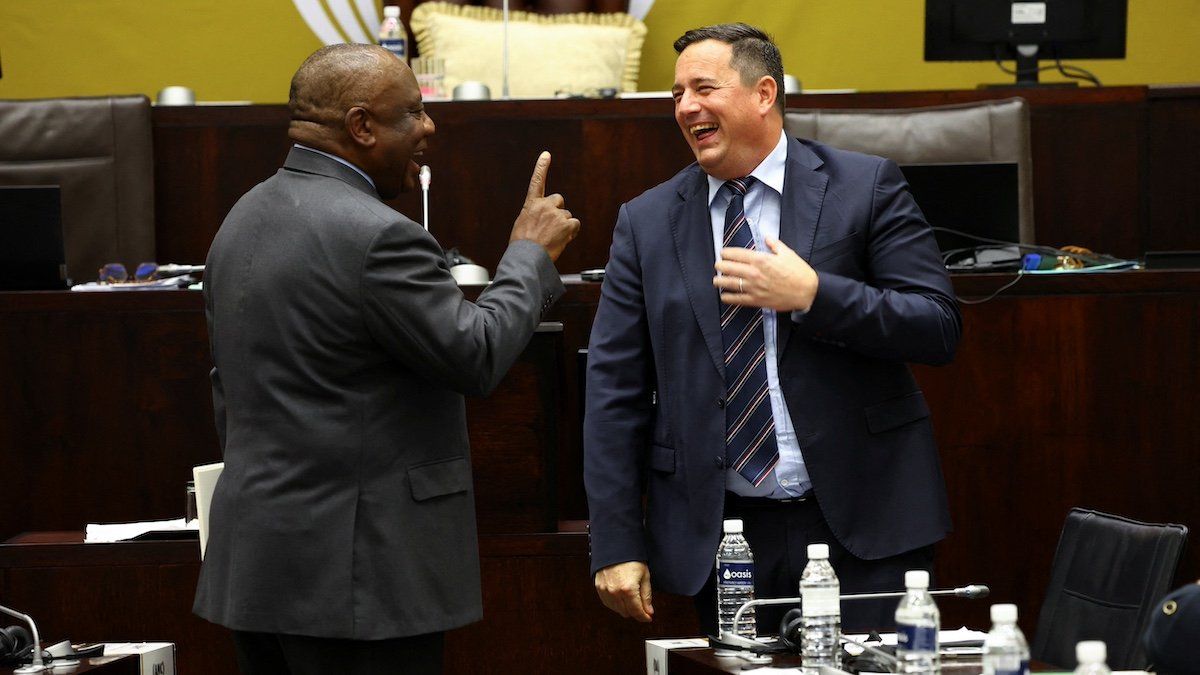This unexpected alliance between South Africa’s long-ruling ANC and the Democratic Alliance has shown early signs of promise. One hundred days into the country’s Government of National Unity – made up of the erstwhile archrivals – voters are more positive about the country’s direction, and investors are bullish about its economic prospects. President Cyril Ramaphosa has even called the GNU South Africa’s “second miracle” – the first being the peaceful transition from apartheid to multiracial democracy in 1994.
Ramaphosa isn’t overplaying it: His African National Congress, once led by Nelson Mandela, campaigns on its history of Black liberation, while the Democratic Alliance is seen as the party of the white minority. Their odd marriage resulted from the ANC losing its parliamentary majority earlier this year – for the first time since 1994. Frustrating coalition talks in June prompted ANC Secretary-General Fikile Mbalula to describe the parties as “oil and water.”
And yet, they’ve made progress. The rand has strengthened 6% against the dollar since July, and the stock market has rallied by 20%. Ramaphosa says South Africa aims to triple its GDP growth to 3% this year.
Saffers are noticing. A 58% majority think the GNU is doing well and – rather incredibly – 62% of Black voters approve of the DA’s job performance (fewer than 5% supported the DA in the election). Some 40% say their country is now on the right track, double the figure from June.
Too early to declare success. Still, the GNU’s ad-hoc style is likely to come up short when tackling the big issues, such as corruption, crime, decrepit infrastructure, and poor energy and water supplies. Daunting, but in the words of Mandela, “It always seems impossible until it’s done.”